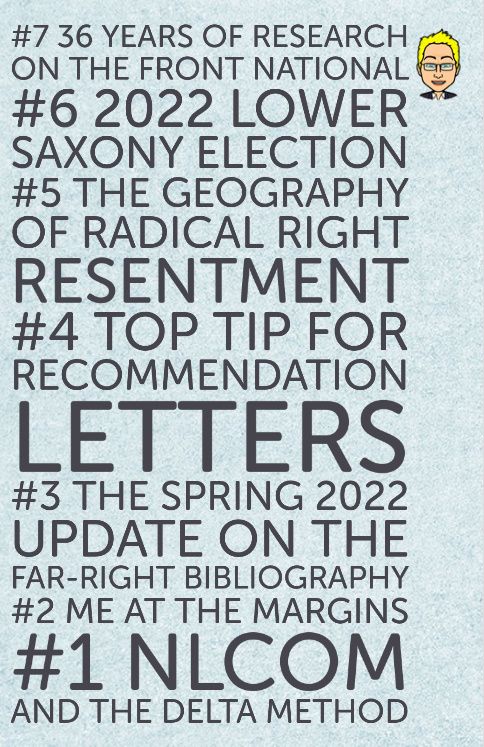The Twitter meltdown has made some of us old-timers all gooey with nostalgia.
Once upon a time, the blogosphere was a thriving ecosystem of personal expression and creativity. But alas, in the age of social media and corporate media domination, the humble blog has become a relic of a bygone era. Nowadays, it seems that the only people still clinging to their blogs are those who are either too stubborn or too technologically illiterate to join the rest of the world on Instagram or TikTok. The blogosphere may be dying, but at least it’s going out with a bang… of complete and utter irrelevance.
Just to underline my point, the previous paragraph was written by ChatGPT. See what I did here? Anyway, while much of the (personal) blogging ecosystem is gone and unlikely to return even if interest in more decentralised forms of digital communication is not-quite-resurging-yet, some of us still write the odd post on ye olde blog. And so without further ado, here is the list of the seven least unread most read blogs on this site in 2022.
#7 36 years of research on the Front National & the Le Pens
Political science (and political commentary) is cursed: we are damned to repeat ourselves, over and over again. To illustrate that point in the run-up to the 2022 presidential election in France, I had a quick look at the far-right bibliography and made a mini-reading list of more than 60 titles discussing the FN/RN, one of the most successful far-right parties in Europe. People clicked on that more than 120 times.
#6 2022 Lower Saxony election: the AfD double their result
I used to be a comparative political sociologist who also does stuff on Germany, but thanks to Alternative for Germany, I’ve spent entirely too much of the last nine years on a single German party. One stylised fact about the AfD is that they are much more successful in Germany’s East than in the western states. This year, however, they outperformed expectations in the Western state of Lower Saxony (all those Saxonies – no, I cannot explain what they are about). This short post, written on election night, discusses the significance of the result. Some 120 people read this (a small fraction of the impressions that the corresponding tweets had, by the way).

#5 SCoRE and the geography of radical right resentment in Germany
Early in 2022 (and continuing with the far-right in Germany / sub-national differences theme), I was invited for a talk at the WZB on the regional distribution of attitudes (using SCoRE project data) This short post has my slides, which include many, many colourful maps. Since then, the talk has become a manuscript, which has already been rejected once. Happy, productive days.
#4 Top tip for academic recommendation letter writing
Letter writing is tedious, rather pointless, and thankfully not too common in continental Europe. As it turns out, it can be done rather efficiently and convincingly by the free ChatGPT beta, which produces convincingly heartfelt recommendations. We will all be out of our cushioned cultural workers’ jobs before we know it. Which is why almost 250 people clicked on that link.
#3 The spring 2022 update on the far-right bibliography
The literature on the Radical Right keeps growing at an exponential rate. A fraction of this research ends up in the bibliography, which I’m updating more or less continuously. Once or twice per year, I get round to writing a blog about the new crop of titles. This year’s instalment of the series attracted a lot of interest (by personal blog standards), with more than 300 clicks. I also made a very short video on what was new in radical right research in 2022.
#2 Me at the margins
Stata’s margins command is invested with quasi-magical powers. This short post from 2011 (!) explains some of the concepts behind it and still attracted more than 330 views, eleven years after it was written.
#1 nlcom and the delta method
Stata’s nlcom command is a user-friendly and very powerful interface to the delta method, which is a way to calculate standard errors for linear and non-linear combinations of estimands. This post about the command and what you can do with it is from 2013 and attracted marginally more (oh awkwardest of awkward puns!) views than the previous one.
The latter two posts have been consistently popular for (more than) a decade, but it’s nice to see that people are reading (some of) the current stuff, too.
Having said that, personal blogs seem to become more niche with every passing year, and the number of readers on this one is declining, too. So if you see something that’s interesting here or on any other non-commercial site, why not share the hell out of it? Just a thought.
p.s. the second paragraph from the top was produced by a simple prompt: “Write a sad but snarky paragraph about the decline of the blogosphere”. Scary? Scary.
